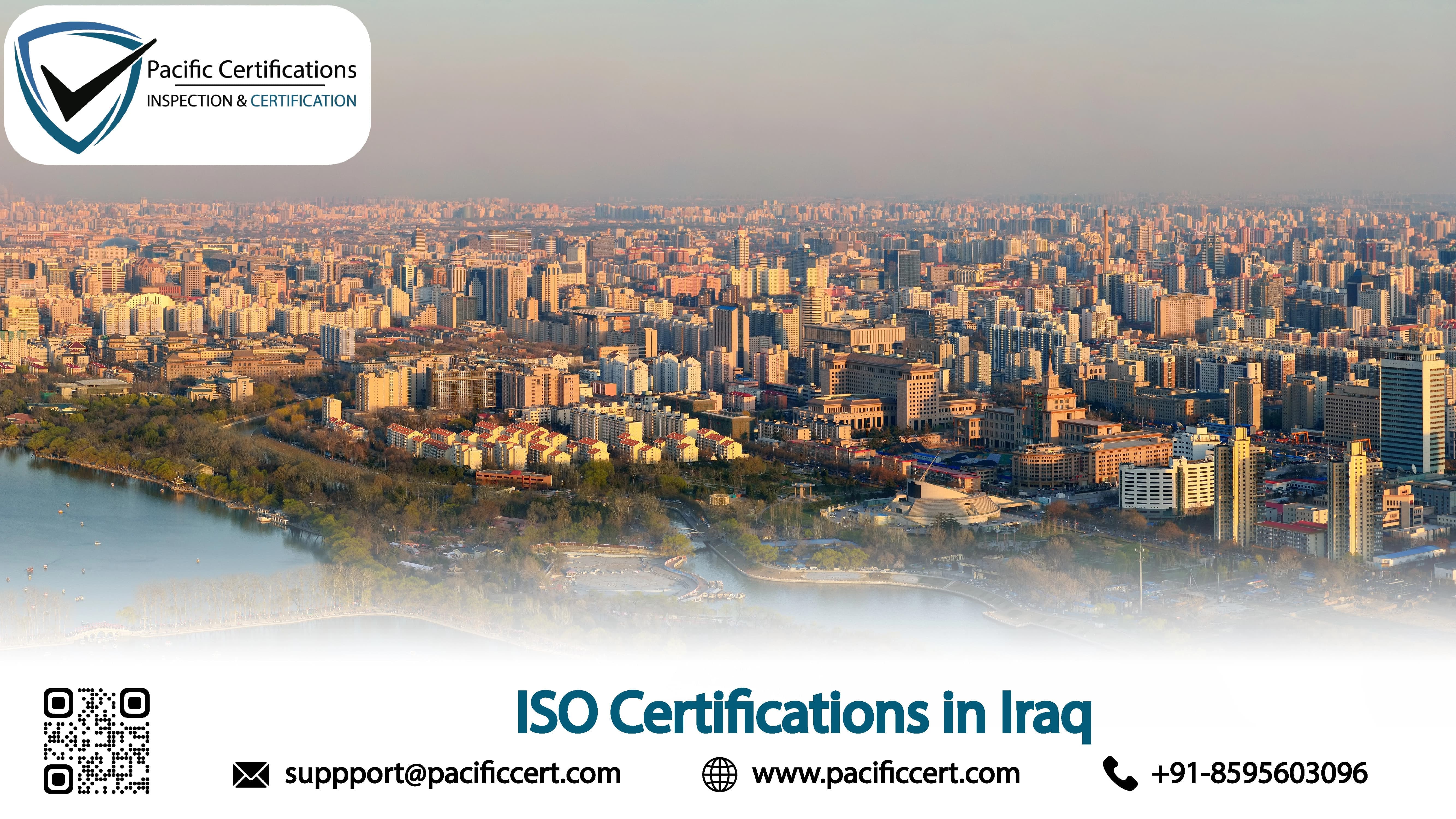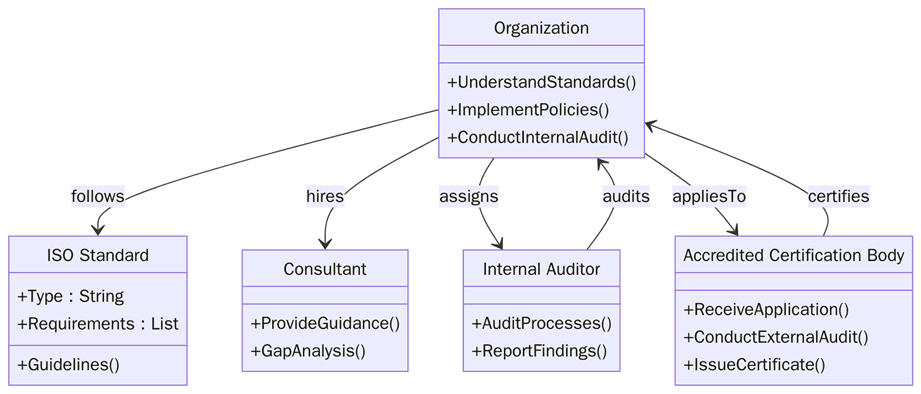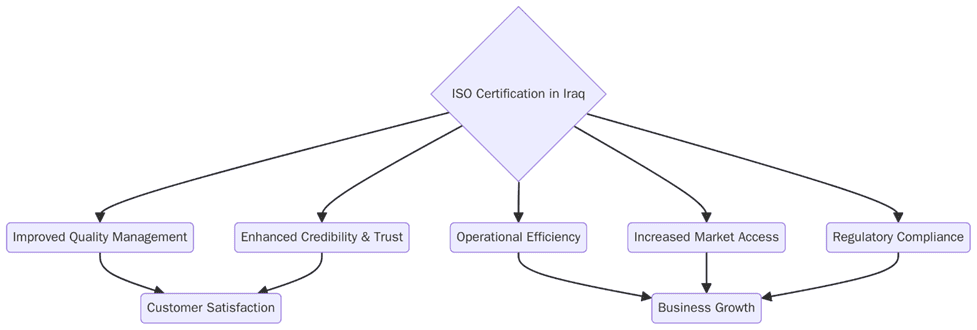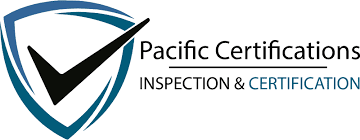ISO Certifications in Iraq, Popular Standards, Requirements and Benefits

Introduction
Iraq’s economy is rebuilding and diversifying across hydrocarbons and gas processing, metals and cement, agrifood, construction and infrastructure, logistics through Basra (Umm Qasr/Grand Al-Faw), healthcare and laboratories and an expanding digital services base in Baghdad, Basra, Erbil and Sulaymaniyah. By adopting standards such as ISO 9001 (Quality Management), ISO 14001 (Environmental Management) and ISO 45001 (Occupational Health & Safety), companies in Iraq can improve efficiency, reduce waste and earn trust from partners and regulators. For growing sectors like ICT, construction and agrifood, ISO certification has become a practical step toward attracting international clients and competing confidently in regional markets. These programs provide verifiable assurance on quality, safety, environment, information security and continuity that buyers, financiers and development partners recognize across the Middle East and beyond.
Contact Pacific Certifications to initiate ISO certification in Iraq, receive a documented scope and Stage 1/Stage 2 audit schedule under recognized accreditation.
Economic Context & Industry Overview
Hydrocarbons still anchor exports and public revenue, yet policy and investment are increasingly directed toward gas capture and power reliability, port and rail logistics and private-sector development. Food processing, construction materials and utilities are modernizing to meet demand; ICT and e-government efforts are building the foundation for digital services. Across these sectors, public buyers, international contractors and lenders are converging on auditable management systems as a baseline for tendering, supplier approval and due diligence.
Why ISO certification matter in Iraq?
Projects are capital-intensive, multi-stakeholder and subject to close oversight. ISO standards offer a common assurance language that shortens vendor approvals, demonstrates legal compliance and aligns daily work with risk-based controls. On sites and plants, ISO 45001 reduces injuries and downtime; ISO 14001 and ISO 50001 evidence emissions and energy performance improvements; ISO 9001 stabilizes yield and service quality; ISO/IEC 27001 and ISO 22301 protect data and uptime for banks, telecoms and public platforms; and ISO 22000/FSSC 22000 provide HACCP-based confidence for agrifood and cold-chain operators.
Popular ISO Standards in Iraq
Certification Process in Iraq
Preparation starts with an honest view of how work runs today and how evidence is captured. The aim is to make your system auditable without reinventing daily routines. Below are the steps to consider:
List products services sites headcount and high-risk processes for clear scope
Map processes end to end to show handoffs records and responsibilities
Set policy and measurable objectives linked to customer and legal needs
Assemble evidence packs for production maintenance labs IT and logistics
Train process owners keep competence matrices and attendance records current
Calibrate instruments verify methods and file certificates for quick checks
Run internal audits that sample high-risk tasks and supplier interfaces
Hold management review with KPIs audit results complaints legal updates and actions
Schedule Stage 1 for readiness and Stage 2 for implementation verification align multi-site sampling to risk
Blend on-site checks with remote interviews where suitable to reduce travel time
Keep permits licenses and regulatory reports organized for quick verification
What are the requirements of ISO Certifications in Iraq?
Build the system around how work actually runs on lines, sites, camps, clinics, warehouses and data rooms—and align with Iraqi norms so evidence stands up in audits, inspections and buyer reviews; below are the key requirements:

A scope that matches products/services, processes and sites (single or multi-site).
A documented management system with controlled procedures and records that reflect practice.
Risk assessment with operational controls for real hazards (process safety, lifting, confined space, HACCP, environmental aspects, privacy/security, energy) and change management.
Competence matrices and training records for process owners and high-risk roles (permit issuers, weld/NDT, cold-chain handlers, first responders).
Internal audits with reports, nonconformities, root-cause actions and verified closures.
Management review with inputs (KPIs, audits, incidents/complaints, legal updates) and tracked decisions.
Standard-specific artefacts: HACCP studies & CCP logs (ISO 22000), Statement of Applicability & risk files (ISO/IEC 27001), HIRA & PTW (ISO 45001), aspect-impact registers & objectives (ISO 14001), energy review & EPIs (ISO 50001).
Legal/other requirements register with permits, inspections, calibrations, monitoring data and supplier compliance evidence.
Tip:Map controls to environmental permitting/monitoring, labour and occupational safety duties, food and veterinary requirements for agrifood and data protection/cyber guidance for digital services.
What are the benefits of ISO Certifications in Iraq?
Use certification to win public tenders and EPC/vendor approvals, reassure lenders and development partners and stabilize operations across challenging environments; below are the key benefits:

Faster prequalification in buyer portals and public procurement
Fewer incidents, defects and unplanned stoppages on sites and plants
Clear roles and competence development for critical operations and maintenance
Traceable data for warranty, claims, ESG and due diligence
Stronger supplier oversight through audits, KPIs and corrective actions
Measurable gains in energy use, waste, emissions, uptime and yield
Stronger brand signals for GCC, Levant, EU and global market.
Market Trends
Iraq’s power-sector transition is moving from policy to implementation, with UNDP and government partners laying out actions to integrate renewables, improve efficiency and secure supply pressure that will push utilities and large users to formalize ISO 50001 (energy), ISO 14001/45001 (EHS) and ISO 22301 (continuity) so that grid variability, gas-to-power shifts and project milestones are auditable. (source: UNDP) In parallel, renewables targets are becoming a procurement driver: Iraq has repeatedly referenced plans to deploy ~12 GW of solar by 2030 and international assessments highlight the need for robust governance and grid modernization, conditions that favour certified management systems as developers, contractors and off-takers standardize their controls.
Investment into Umm Qasr and adjacent corridors (including rail modernization and new port/terminal projects) is designed to raise throughput and reduce bottlenecks. Operators competing for volume and finance will increasingly adopt ISO 9001/14001/45001/28000 to meet safety, environmental and chain-security expectations as container handling scales. (source: en.portnews.ru) Finally, Iraq’s digital transformation work tracked by regional bodies and UN agencies, points to sustained demand for ISO/IEC 27001 and ISO 22301 across banks, telecoms and public platforms as e-payments and e-services broaden and service-level obligations harden.
Challenges Faced in Iraq
Operational, regulatory and evidence-readiness issues related to getting certified can cause delays, budget constraints and staffing gaps, incomplete or outdated documentation and records, weak internal audits and corrective actions, supplier-control gaps, multi-site sampling and travel logistics (including remote/desert locations), calibration and permit backlogs and data/privacy mapping for ICT; below are the key challenges:
Budgeting for certification time and ongoing system maintenance
Perception of ISO as “compliance” rather than a performance tool in some teams
Shortage of seasoned internal auditors and process owners outside major hubs
Stalling on document control, internal audits and corrective-action discipline
Multi-site and supplier sampling (e.g., field-to-terminal chains) complicating logistics and evidence quality
What is the cost of certification in Iraq?
Certification budgets are confirmed after scoping and reflect headcount and risk, the number and spread of sites (e.g., Basra, Baghdad, Erbil, Kirkuk), your standards set (single vs. integrated such as 9001+14001+45001), sector sampling depth (process plants, pipelines, cold chains vs. offices) and travel/logistics to field or remote locations. Your proposal itemizes Stage 1, Stage 2 and surveillance days, clarifies on-site versus remote activities and highlights any multi-site efficiencies so budgets remain transparent and predictable.
For personalized quote, contact [email protected].
What is the timeline for certification in Iraq?
Timelines depend on document and record readiness, the speed of closing any Stage-1 findings, whether you are single- or multi-site and whether the program is single-standard or integrated. Coordinating audit windows around shutdowns, production ramps, weather/seasonal conditions and auditor travel to regional or remote sites also affects duration. A well-prepared single site can progress from application to decision within one audit cycle; multi-site or integrated programs typically require additional planning and sampling time.
How Pacific Certifications can help?
Pacific Certifications audits and certifies ISO management systems for oil and gas and gas processing, construction and EPC, logistics and ports, agrifood and cold chain, healthcare and labs, utilities and energy and ICT/cloud across Iraq. We work under recognized accreditation with transparent pricing and an experienced local team that understands site realities and buyer expectations. Our certificates are accepted by procurement portals and international customers and we are recognized by ABIS.
Request your ISO audit plan and fee estimate. We will help you map Stage 1 and Stage 2 timelines and evidence requirements for your organization. Contact us at [email protected] or visit www.pacificcert.com.
Accredited Training Programs
Pacific Certifications provides accredited training programs in Iraq for ISO 9001, ISO 14001, ISO 45001, ISO 22000/FSSC 22000, ISO/IEC 27001, ISO 22301 and ISO/IEC 20000-1.
Lead Auditor Training: for professionals auditing these systems across Iraqi industries.
Lead Implementer Training: for personnel establishing or improving systems in plants, sites, cold chains, hospitals, utilities and ICT platforms.
These programs are conducted online or onsite, depending on client needs under ISO/IEC 17024 for personnel certification.
To begin the process or request a quotation, contact us at [email protected] or visit www.pacificcert.com.
Our team will guide you through the audit and certification process and planning stages specific to your operations in Iraq.
Ready to get ISO certified?
Contact Pacific Certifications to begin your certification journey today!
Suggested Certifications –
Read more: Pacific Blogs

